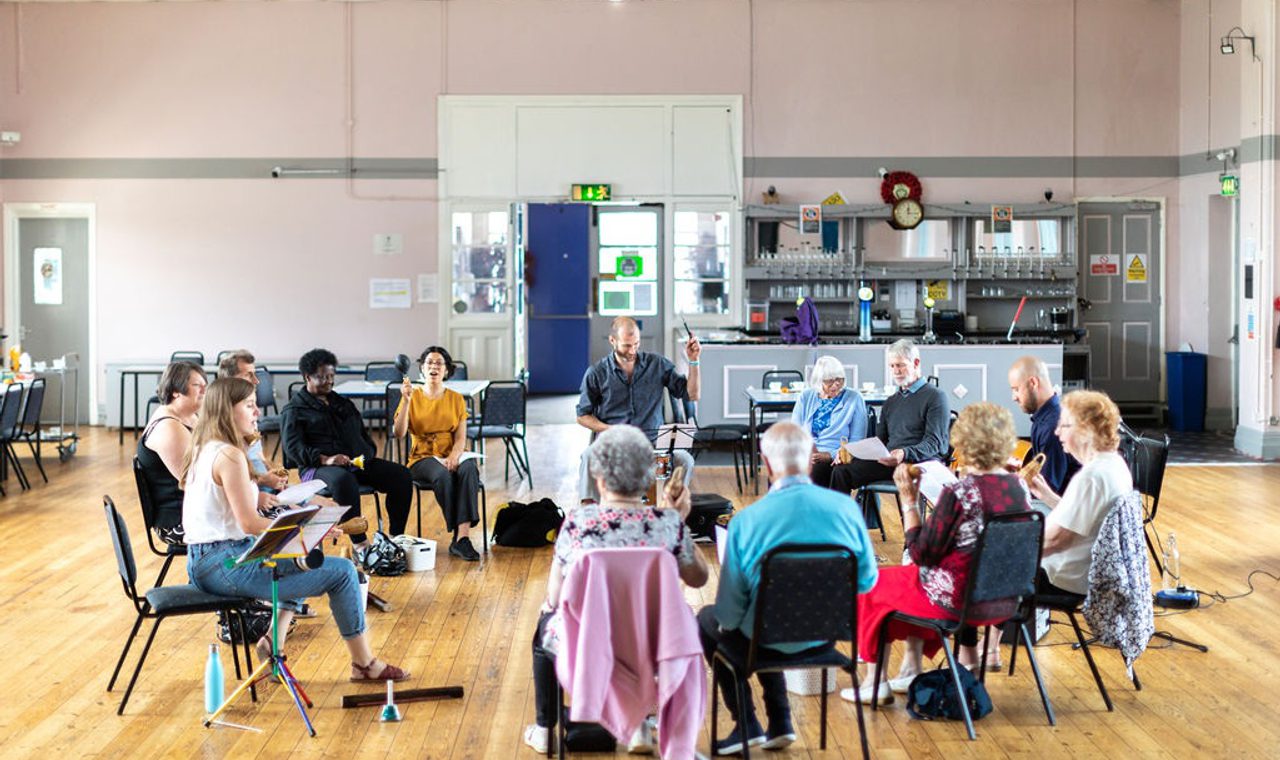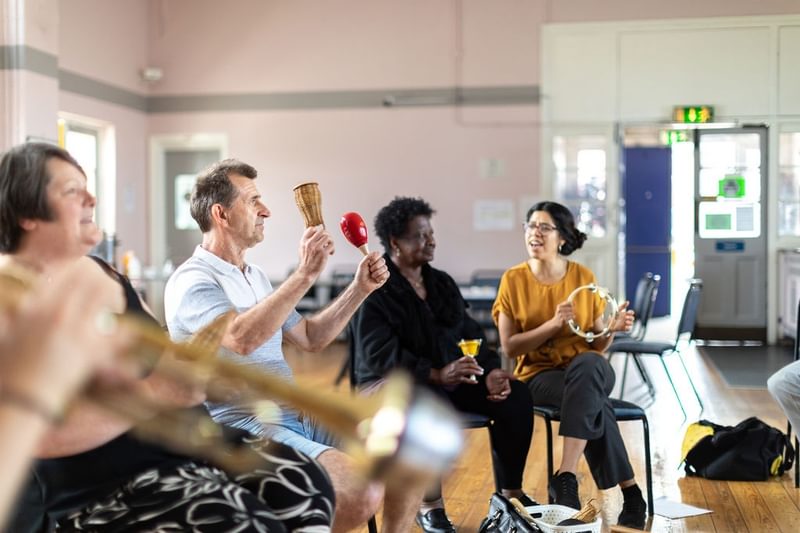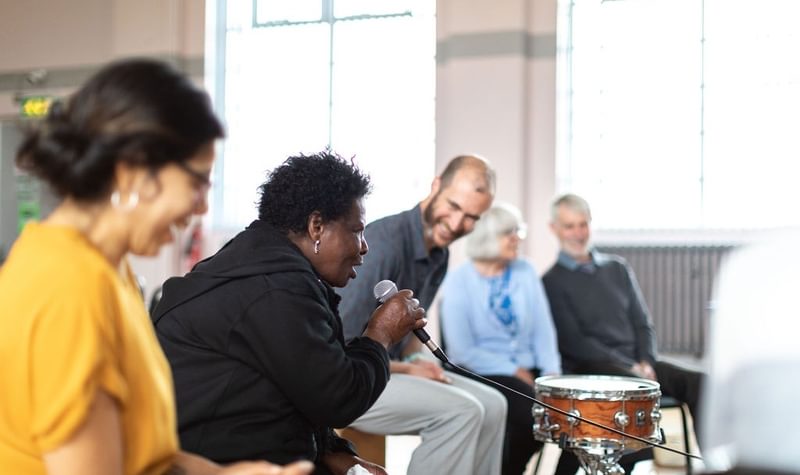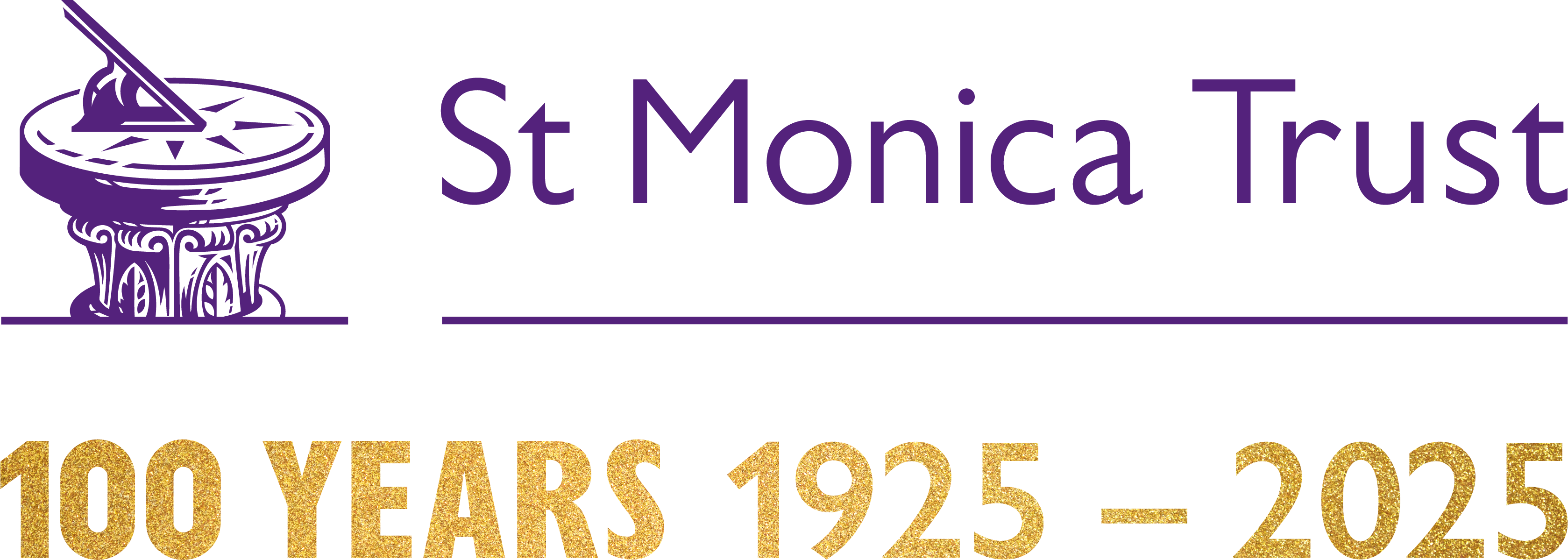
Case Study: Bristol Beacon
The St Monica Trust is one of several charities supporting Bristol Beacon to run a free weekly music club for adults living with dementia and their primary carers. Run in collaboration with Bristol Dementia Wellbeing Service, these sessions use music to improve the quality of life for all the participants.
The group has had a positive impact on the lives of those who attend, ranging from the short-term benefits of positive mood changes to longer-term achievements such as an increase in word use, confidence to join other clubs, and a boost in independence.



T's story
59-year-old ‘T’ was diagnosed with dementia at age 56 and is around 15 years younger than the other Our Music Club participants.
After being diagnosed with dementia, T cut out most of their socialising due to a sense of embarrassment and shame that came with their diagnosis. Due to this, they stopped participating in hobbies that made them happy, including playing the guitar.
After three weeks of coming to Our Music Club, T went home and picked up the guitar for the first time in three years. The following week, they brought their guitar to the session. There have been notable changes in T’s confidence, and willingness to hold conversations, take risks and participate.
Energised by the music
One participant found new strength in the group, having been given the opportunity to conduct a musician playing the trumpet.
Our Music Club leader described the session as captivating: “Her focus changed, and she became almost another character. It was captivating to watch.”
After the session had ended her carer brought her walking frame over to her, and she stood up to it completely unaided for the first time in several years. She was incredibly surprised but said that she had felt “energised by the music”.
Stories like this illustrate how valuable these sessions are to the lives of older people, especially those living with dementia.
Music and dementia
Music and language access different parts of the brain, meaning that language can be used to engage or communicate with someone who struggles to respond due to being diagnosed with dementia.
Playing music can often inspire an emotional response, whether that be due to a personal memory or the melody of the song being a pleasant experience for them.
The key benefits of music for dementia are:
- Mood enhancing
- Self-expression
- Reduce distress
- Social connection and interaction
- Promoting physical movement
- A prompt for reminiscing
"I've done quite a few sessions now. I've heard so much different music that I wouldn't hear anywhere else. Being able to be part of that and build my own confidence by chiming in is really nice. My confidence has definitely got a lot better since I started coming."
You can find out more about Our Music Club on the Bristol Beacon website, or by contacting them by telephone 0117 204 7103 or email community@bristolbeacon.org.
